Uncategorized
-
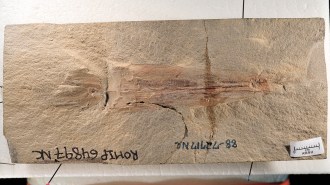 Paleontology
PaleontologyScientists are arguing over the identity of a fossilized 10-armed creature
An ancient cephalopod fossil may be the oldest ancestor of octopuses, but the interpretation hinges on the identification of one feature.
By Anna Gibbs -
 Astronomy
AstronomyA new image captures enormous gas rings encircling an aging red star
The rings, seen for the first time, provide insight into how giant stars lose mass and seed the cosmos with elements.
By Ken Croswell -
 Physics
PhysicsRussia’s war in Ukraine raises nuclear risks, physicists warn
Experts flag the potential for accidents at seized nuclear sites as well as the increased dangers of accidental nuclear warfare.
-
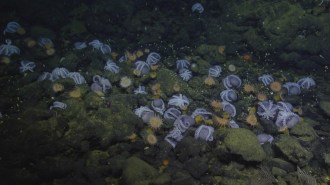 Oceans
OceansSome deep-sea octopuses aren’t the long-haul moms scientists thought they were
Off California’s coast, some octopuses lay eggs in the warmer water of geothermal springs in the “Octopus Garden,” speeding up their development.
-
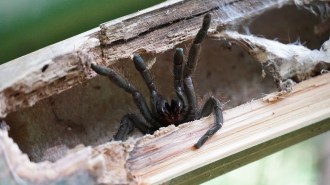 Animals
AnimalsThis newfound tarantula is the first known to make its home in bamboo
Bamboo stems provide the spider with ready-made burrows and nests, but the arachnid must rely on other animals or natural forces to gain entry.
By Becki Robins -

-

Why aren’t we listening to what science is telling us?
Editor in chief Nancy Shute discusses how the last century of climate science has mapped our understanding of today's climate crisis and solutions.
By Nancy Shute -
 Life
LifeSome E. coli set off viral grenades inside nearby bacteria
A bacterial toxin called colibactin awakens dormant viruses embedded in bacterial DNA, but its ecological role is still unknown.
-
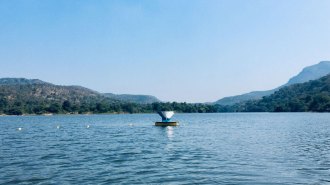 Astronomy
AstronomyAstronomers may not have found a sign of the universe’s first stars after all
A new study of radio waves from early in the universe’s history finds no hint of the “cosmic dawn” claimed by an earlier study.
-
 Space
SpaceHow Russia’s war in Ukraine hinders space research and exploration
A Mars rover, an X-ray telescope and several low-Earth satellites are at risk in response to international sanctions on Russia.
By Liz Kruesi -
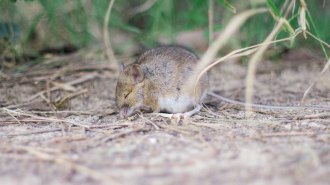 Neuroscience
NeuroscienceA hit of dopamine sends mice into dreamland
New results are some of the first to show a trigger for the mysterious shifts between REM and non-REM sleep in mice.
-
 Health & Medicine
Health & MedicineHow to interpret the CDC’s new mask guidelines
Based on the CDC’s new metrics, most people no longer need to wear masks in most situations, but that could change.